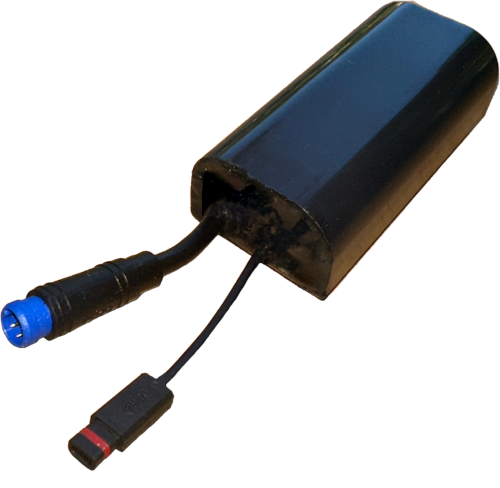KPN Global Tracker Wired

A wired 2G/LTE-M Tracking device with GPS.
Supported network type(s):
KPNSTREAMLINEM2MDevice Specification ID:
kpn-global-tracker-wiredDevice Specification UUID:
7c81c9a6-02e3-46f2-ac68-a300927b5535
Decoded M2M Data for GlobalTracker Wired
58a31b2d-05f1-5e4b-a531-18d4f896dbd7
Decoder for M2M KPN Global Tracker Wired devices.
Decoded M2M Data for GlobalTracker Wired
Decoder for M2M KPN Global Tracker Wired devices.
The following SenML records can be present, amongst others:
altitude
m
The measured altitude
batteryVoltage
number
V
3.59
firmwareVersion
string
Not present in detail level 1 messages
gpsTime
number
s
Unix EPOCH time in seconds
gsmNetworkId
string
eventDescription
string
"Start moving""Stop moving""While moving""While not moving"
Description of the device event. Not present in detail level 1 messages.
eventId
string
"40"(Stop moving)"41"(Start moving)"44"(While moving)"45"(While not moving)
Id of the device event. Not present in detail level 1 messages
gpsStatus
string
"0"(OK)"1"(Speed/heading invalid)"32"(Accuracy not met)"33"(Accuracy not met + Speed/heading invalid)
Identifier indicating the GPS Status
gpsNotes
string
"OK""Accuracy not met""Speed/heading invalid""Accuracy not met + Speed/heading invalid"
Description of the GPS Status
heading
number
rad
Direction in radials. Not present in detail level 1 messages
latitude
number
lat
Latitude of the device. Not present in detail level 1 messages
longitude
number
lon
Longitude of the device. Not present in detail level 1 messages
radius
number
m
Radius indicating the precision of the positition. Not present in detail level 1 messages
switch
string
"0"(Position)"53"(SV_CountersUser)"64"(SV_Network)"77"(TimeAlive)
Identifier indicating the record-type. In case Switch=77, there has been no GPS Fix and the Geo coordinates belong to the previous GPS Fix.
switchName
string
"SV_Position""SV_CountersUser""SV_Network""SV_TimeAlive"
Name of this record-type.
temperature
number
Cel
The measured temperature
velocity
number
m/s
Velocity of the device. Not present in detail level 1 messages
Example SenML
SenML can be structured in different ways, and we do not guarantee the examples below will look the same as what you will receive on your Destination. To make sure you can handle the SenML optimally, take a look at our documentation about Understanding and Interpreting SenML Data.
Detail level 1 (SV_CountersUser)
Detail level 2 (SV_Network)
Detail level 3 (SV_Position)
Last updated
Was this helpful?
